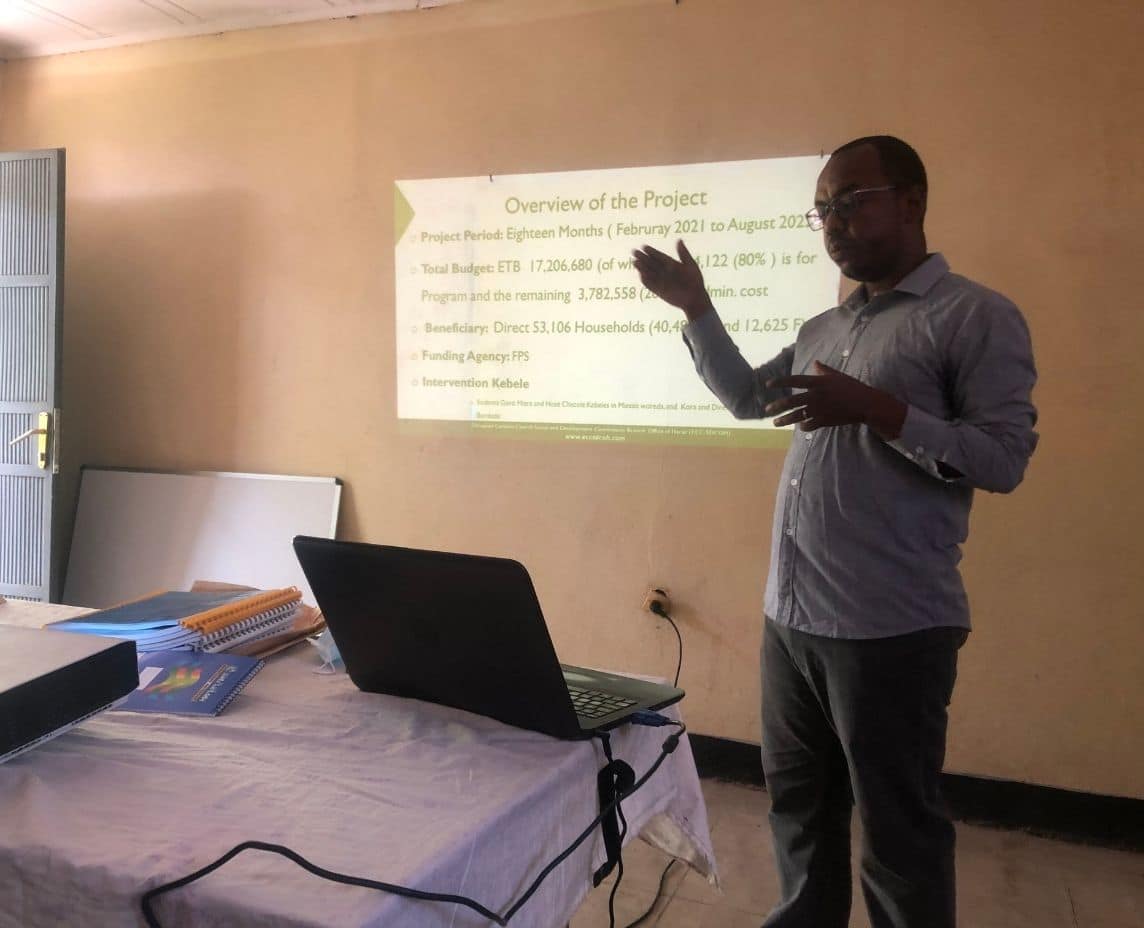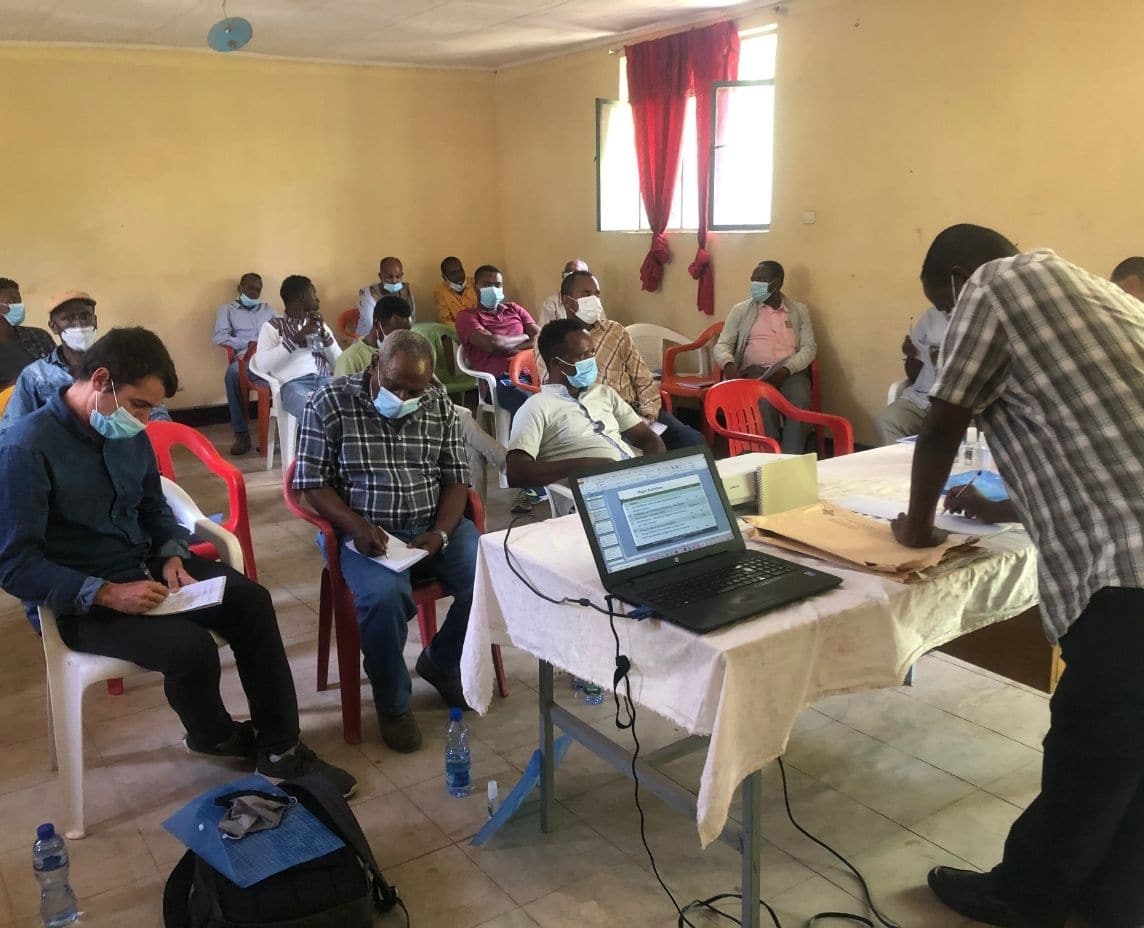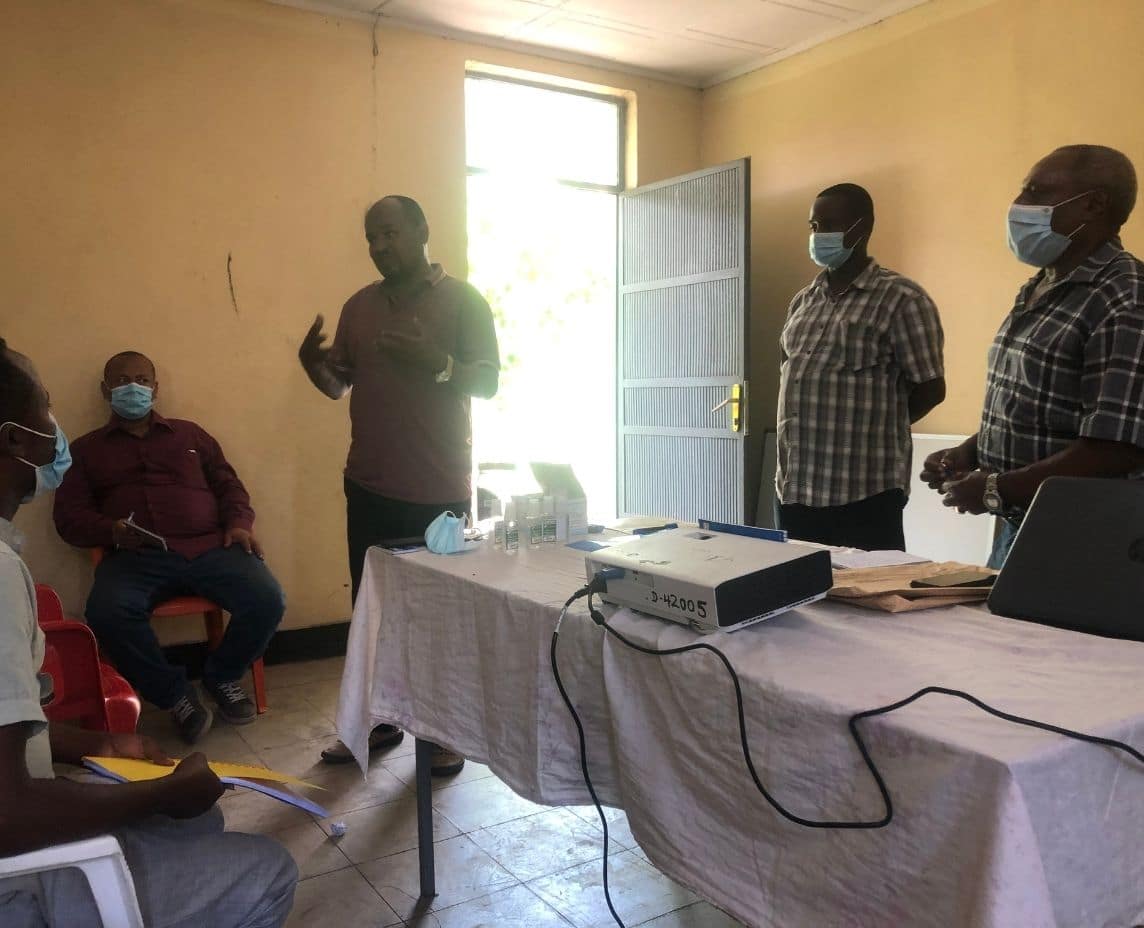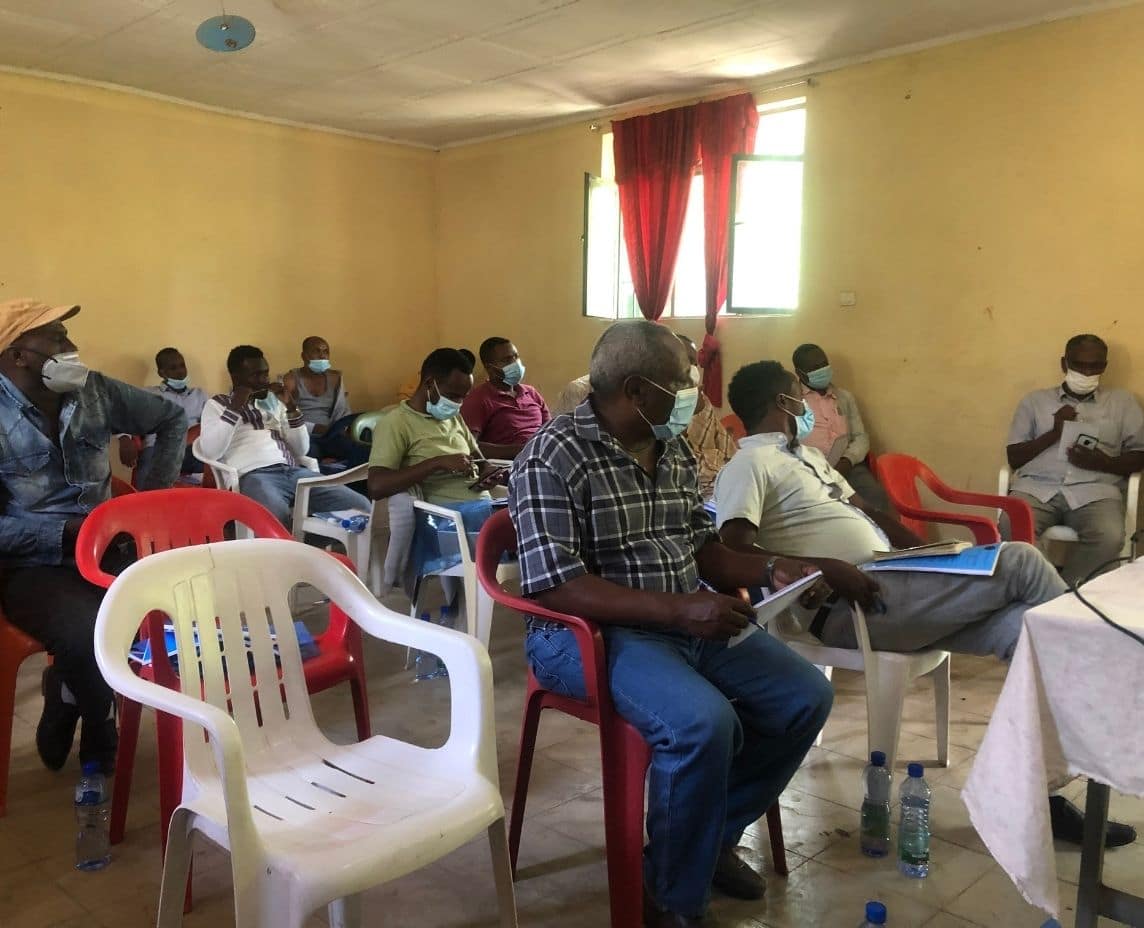On May 17 and 18 took place in the town of Chiro, Ethiopia, the launching workshop of the new project funded by AECID, which Social Promotion Foundation implements with its local partner, Ethiopian Catholic Church Social and Development Commission (ECC-SDCO) – Harar Coordination Office.
The aim was to officially announce the start of activities, create a better understanding of the roles and responsibilities of all stakeholders, get to know each other and improve the relationship between the implementation team and the local authorities, and increase the commitment and inclusion of the latter.
The event was attended by authorities from the various government sectoral offices (Agriculture and Natural Resources Bureau, Women’s Bureau, Water and Sanitation Bureau, and Finance Bureau) at the local and regional levels, as well as the team responsible for implementing the activities on the ground during the project’s expected 18-month duration.
During the workshop, our expatriate in the country, Gerard Poch, made his intervention in the local language, Oromo, because as Nelson Mandela said, “If you talk to a man in a language he understands, that goes to his head. If you talk to him in his language, that goes to his heart”. He was also able to perceive the good reception of the project and the relationships generated, which he hopes will continue during the project’s implementation period to contribute to strengthening the resilience of the rural population of two woredas in West Harghe, Ethiopia, in the face of the impacts of the pandemic generated by COVID-19, as well as other threats linked to climate change.
To this end, the intervention includes three lines of action that seek to protect access to rights and strengthen livelihoods for inclusive and sustainable economic growth, with special emphasis on the water, hygiene and basic sanitation sector; agriculture and income diversification; and disaster prevention and response through sustainable and participatory management of natural resources.
Through the rehabilitation and installation of hybrid energy systems by incorporating solar energy in 4 water wells and the construction of 300 latrines and hand-washing facilities, access to water, sanitation and hygiene services will be improved. Similarly, the hygiene habits of rights holders will be strengthened through training and awareness campaigns on hygiene, sanitation and COVID-19 prevention measures, paying special attention to the needs of women and girls and people in situations of greater vulnerability in order to achieve a better response to the pandemic and the effects of climate change, which are generating serious consequences on people’s livelihoods.
In addition, the project will work to increase productivity and food production through irrigation and climate-sustainable agricultural practices, as well as productive diversification and the creation of income-generating groups. Specific value chains in the agricultural and food sector will be strengthened, such as food processing and other economic opportunities through the introduction of grain mills that will operate with the electricity produced by the solar equipment to be installed (off-grid). The project will also focus on capacity building for the TDs, who will receive training in income diversification, entrepreneurship, and business management, following a market study and personalized advice to improve the marketing of their products and services. With a cross-cutting gender approach in the various activities, priority will be given to the active participation of women, and at least 2 productive groups will be formed by women only.
Furthermore, the deterioration of ecosystems and biodiversity due to habitat loss and modification, agricultural development, climate change, pollution and overexploitation is increasing the risk of zoonotic disease pandemics, such as COVID-19, and phenomena linked to these disasters. Therefore, the project aims to increase local resilience through the strengthening and support of 4 Disaster Risk Reduction Committees (DRRC), the rehabilitation of degraded lands with physical and biological actions for the protection of resources and the training and sensitization of communities and WASHCOS and DRRC committees, thus favoring governance.








